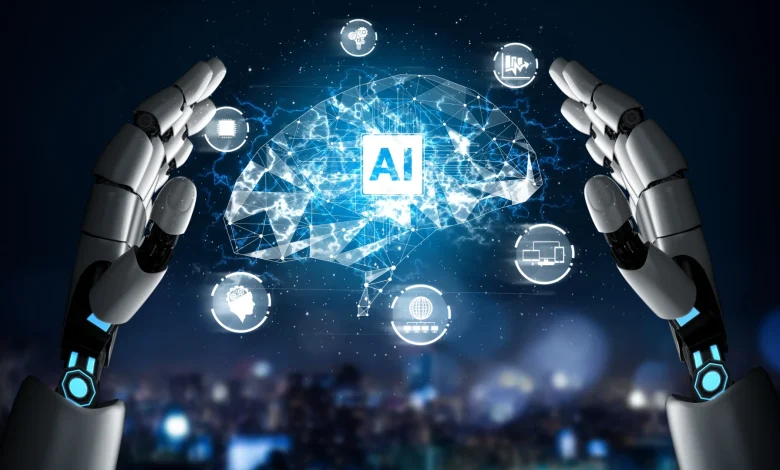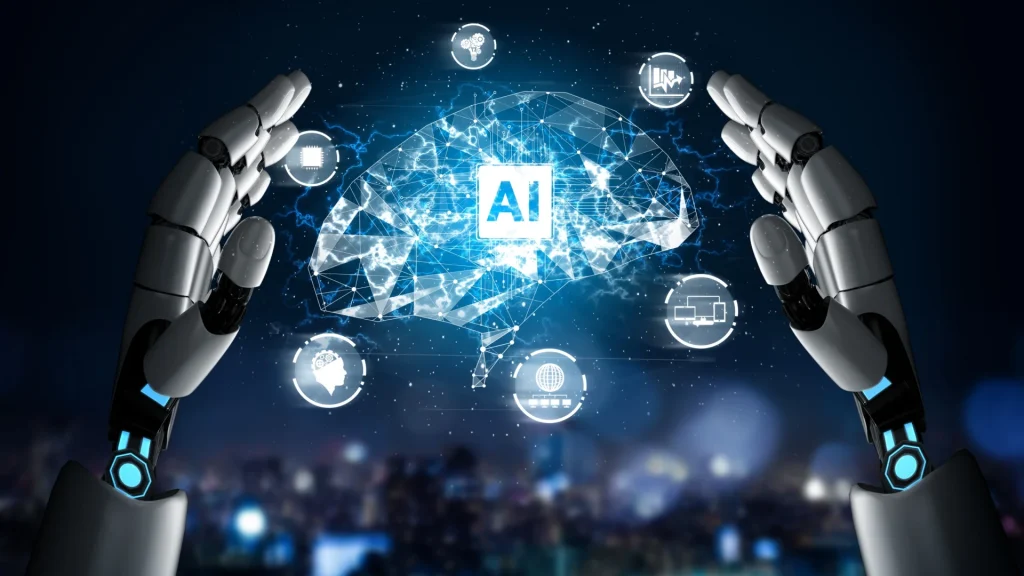AI Technology’s Latest Advancements for Businesses

AI Technology Artificial Intelligence (AI) has emerged as one of the technologies that will have the greatest global impact on business. Artificial intelligence (AI) has advanced at a never-before-seen rate in recent years, providing creative ways to boost productivity, judgment, and consumer interaction. AI is enabling businesses to function more efficiently and intelligently by improving data analytics and automating repetitive operations. As more and more industries embrace AI, businesses need to keep up with the most recent advancements. This article examines the latest developments in artificial intelligence (AI) and how they are influencing how businesses operate going forward.

Process Automation with AI
According to Matt Calkins, the improvement of automation procedures is one of the most important advancements in AI. Beyond basic task automation, robotic process automation (RPA) has developed to encompass increasingly sophisticated, AI-driven capabilities. Higher-level cognitive processes like decision-making, natural language processing, and even predictive analytics can now be handled by these AI-powered systems. Businesses may now automate more of their activities, increasing operational efficiency and lowering the possibility of human error thanks to this breakthrough. Consequently, businesses are able to devote more resources to growth-promoting strategic initiatives.
Analytics Driven by AI
The application of AI to data analytics is another revolutionary development. Businesses’ approach to decision-making has been completely transformed by AI’s capacity to process enormous volumes of data in real-time. Large data sets can be sorted through by machine learning algorithms to find patterns, trends, and insights that would take humans much longer to find. For sectors where prompt and precise decision-making is crucial, like finance, healthcare, and retail, this breakthrough is especially advantageous. AI-driven data analytics gives businesses a competitive edge by enabling them to make well-informed decisions more quickly and efficiently.
Tailored Client Experiences
AI is also changing how companies communicate with their clients. Artificial intelligence (AI) systems can already offer highly customized client experiences thanks to developments in machine learning and natural language processing. For instance, chatbots and virtual assistants have advanced to the point where they allow companies to provide round-the-clock assistance while customizing interactions to meet the specific requirements of each client. Higher retention rates result from improved client interactions and increased overall satisfaction brought about by this degree of customisation. Businesses are using AI technologies more and more to comprehend and predict consumer behavior and provide goods and services that suit personal preferences.
Predictive maintenance with artificial intelligence
AI is causing a stir in the manufacturing and industrial sectors with its predictive maintenance technology. Real-time machinery and equipment monitoring is now possible thanks to AI systems, which can analyze data to forecast when maintenance is necessary before a malfunction happens. This technique greatly benefits companies that depend on high-capacity machinery by minimizing downtime, lowering repair costs, and extending equipment lifespan. AI-powered predictive maintenance is a must-have technology for the industrial world since it significantly increases operational efficiency and reduces costs for businesses who use it.
Compliance and Ethical AI
Concerns about ethics and compliance are growing in frequency as AI gets increasingly integrated into corporate processes. AI systems created with ethical frameworks in mind are the result of recent developments. By ensuring that automation, decision-making procedures, and data usage adhere to legal and ethical standards, these systems can lower the possibility of prejudice and mistakes. For companies operating in regulated sectors like finance, healthcare, and law, this is especially crucial. As AI develops further, preserving confidence and adhering to industry norms will depend on making sure it functions morally and openly.
Workforce Management with AI
The use of AI technology in workforce management is yet another important development. These days, AI-powered solutions can analyze productivity, optimize staff scheduling, and even spot talent gaps in teams. By analyzing employee performance data and forecasting future requirements, these technologies help firms make well-informed decisions regarding resource allocation, hiring, and training. By providing tailored career development advice and automating administrative duties, AI also contributes to increased employee engagement by giving managers more time to concentrate on strategy and leadership. Businesses are discovering new methods to optimize the potential of their staff as AI continues to be incorporated into human resource tasks.
Cybersecurity and AI
AI is being used extensively in cybersecurity to help companies keep ahead of changing threats. AI-powered security systems can identify and react to possible threats instantly, even as cyberattacks get increasingly complex. These technologies give firms an additional degree of security by using machine learning algorithms to spot odd patterns or behaviors that might point to a breach. In today’s digital environment, where the number and complexity of assaults are continuously rising, artificial intelligence’s capacity to adjust to novel and unidentified threats is essential. Businesses can better safeguard sensitive data, uphold customer trust, and guarantee compliance with data privacy laws by utilizing AI in cybersecurity.
AI’s Role in Business
AI technology is developing quickly and has a significant impact on enterprises. AI is changing how businesses function by automating difficult processes, offering deep data insights, and improving consumer experiences. Businesses are gaining a competitive edge in the market as well as increasing efficiency as they continue to implement AI-powered products and systems. But these developments also bring with them difficulties, like making sure that they are used ethically and that laws are followed. Looking ahead, artificial intelligence (AI) in business promises even more innovation, stretching the bounds of what is feasible and changing the business environment for years to come.
FAQs
1. What are the most recent developments in business-related AI technology?
Natural language processing (NLP), predictive analytics, machine learning (ML) algorithms, AI-powered automation, and AI-driven customer support solutions like chatbots and virtual assistants are examples of recent developments.
2. How might AI boost productivity in businesses?
AI improves decision-making through data-driven insights, automates tedious processes, and streamlines operations. This results in lower expenses, quicker operations, and more precision in a number of corporate procedures.
3. How does artificial intelligence affect customer service?
Chatbots, virtual assistants, and AI-driven analytics are examples of AI-powered solutions that can handle consumer inquiries, provide individualized help, and speed up response times, all of which increase customer happiness.
4. What applications does AI have in marketing?
AI assists companies in delivering tailored marketing messages, optimizing advertising campaigns, and analyzing consumer behavior. Marketers may increase ROI and target the appropriate audience with predictive analytics.



